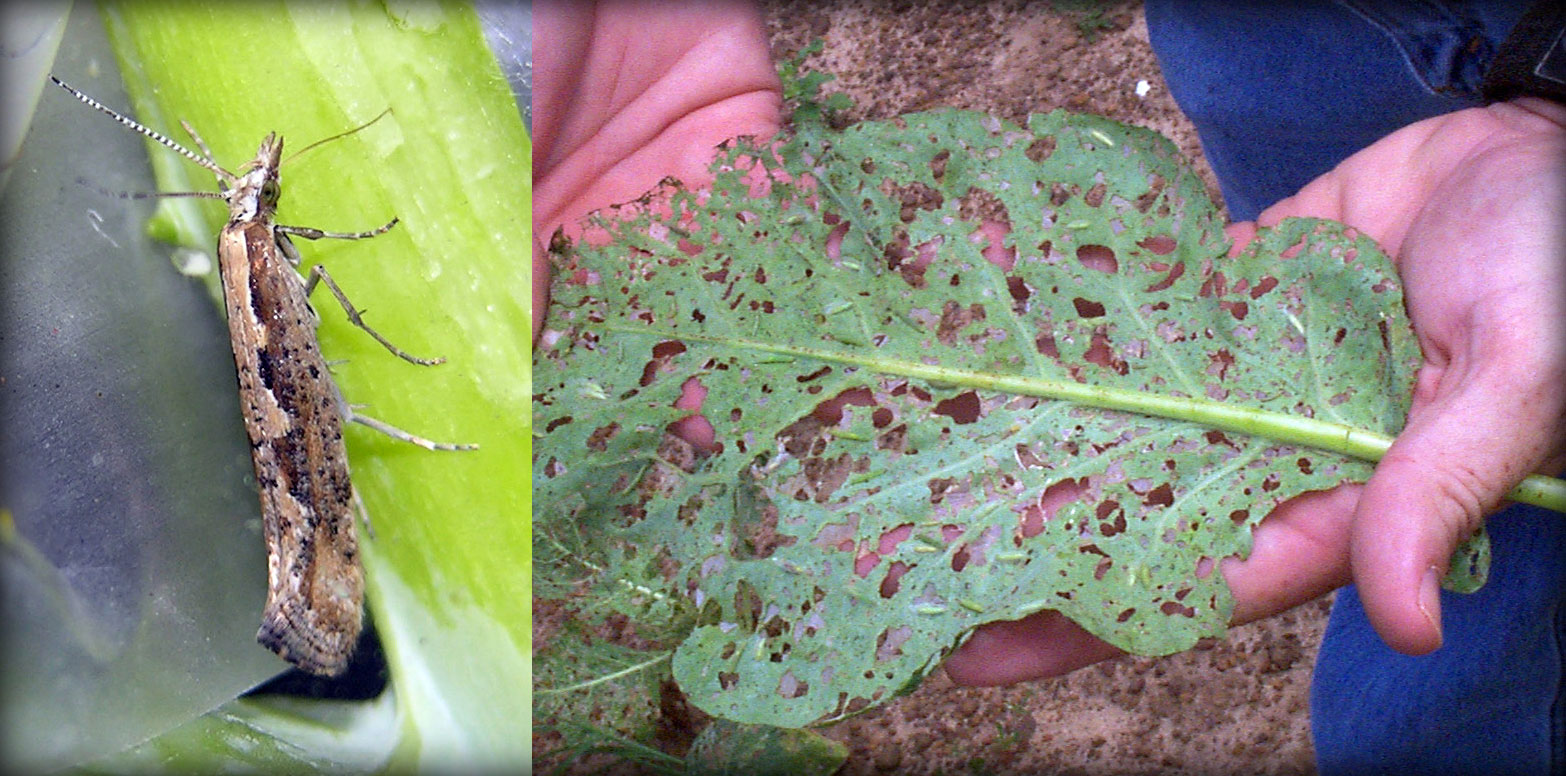Diamondback Moth Insecticide Resistance
Commercial vegetable crops in Georgia currently rely heavily on insecticides to maintain a high level of productivity in the face of the severe insect pest pressure that occurs each year in the South. Unfortunately, the over-use of insecticides with a single mode of action can create pest problems through the selection for resistance. This has happened with diamide (Group 28) and other insecticides for the control of the diamondback moth (DBM) in crops like cabbage, collards, broccoli, cauliflower and turnip greens. The UGA Vegetable Entomology Project at Tifton conducted critical dose bioassays in cabbage and collards in 2017 and continuing into 2018, which consisted of leaf dip bioassays to estimate responses for DBM to maximum field rates of approximately 10 major insecticide modes of action per field sample location. Critical dose bioassays that the researchers provided were needed to evaluate insecticide resistance levels at individual farms to recommend the best alternative treatments and insecticide rotations. They developed a proposal for toxicological and molecular investigations of resistant DBM populations. Better insecticide management could improve production by 15 percent or over $19 million annually.
Read the full impact statement
Related Impact for A world leader in entomology research
- Bermudagrass stem maggot 2018
- Integrating Wetland Ecoystem Services into Agriculture 2018
- Invasive fire ant species 2018
- Investigating vector physiology 2018
- Parasite-host interactions 2018
- Pecan Insect Pest Management 2018
- Robotic cotton harvesting platform 2018
- Spotted-Wing Drosophila in Blueberries 2018

